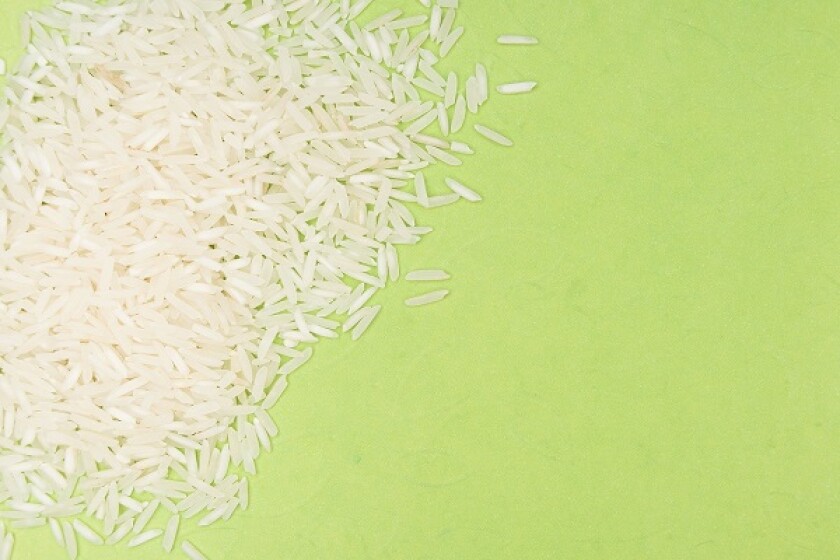Basmati is India’s great contribution to the world of gastronomy. People the world over recognise it as a long grain aromatic rice grown in the foothills of the Himalayas.
Basmati is popular due to its distinct flavour, aroma, taste, and soft and fluffy texture upon cooking. The agro-climatic conditions of the specific geographical region where Basmati is cultivated, plant nutrition, soil, method of harvesting, and other factors contribute towards these unique characteristics. Basmati also has a lower glycemic index: between 45 and 58 as opposed to other varieties of white rice, which have a glycemic index of 89. Therefore it is suitable for diabetics.
More than 85% of global Basmati exports (by quantity and by value) are from India. In 2019-20, India exported 44.55 lakh metric tonnes (4.45 million metric tonnes) of Basmati worth $4.25 billion. Given these figures, Basmati is of considerable economic significance to India in addition to its cultural heritage.
To preserve the unique identity of its aromatic Basmati rice in the international markets, India granted geographical indication (GI) recognition in 2016 to the Basmati producers in the Indo-Gangetic plains on the foothills of the Himalayas. The region includes seven states of India: Punjab, Haryana, Himachal Pradesh, Uttarakhand, parts of Uttar Pradesh, and Jammu & Kashmir. In pre-partition India, the region would also include Pakistan’s Punjab province.
However, since the application for registration of Basmati rice by the Agriculture and Processed Food Products Export Development Authority (APEDA) (as a GI was filed and even before, it has been mired in disputes, both domestic and international).
India’s attempts to protect the Basmati title can be traced back to a historical conflict between the Indian government and the US company RiceTec in the 1990s. RiceTec had sought a patent for certain rice varieties that it had bred from Basmati strains, with names such as Kasmati, Texmati and Jasmati. RiceTec was granted a patent by the US Patents and Trademark Office (USPTO) under number 5663484 on Basmati rice lines and grains on September 2 1997.
The APEDA accused RiceTec of bio-piracy and challenged the patent in June 2000. After a long battle, RiceTec agreed to withdraw several of the claims. On January 29 2002, the USPTO issued a Re-examination Certificate cancelling claims 1-7, 10, and 14-20 of the patent (the broad claims covering the rice plant) out of 24 claims and entered amendments to claims 12-13.
However, the journey to GI protection for Basmati at home was not as simple and APEDA had to cross several hurdles, facing opposition and challenges.
Claims of neighbouring states
The Indo-Gangetic plain also known as the north Indian river plain, is a fertile plain covering the northern regions of south Asia including mostly northern and eastern parts of India, the eastern parts of Pakistan, and the southern plains of Nepal where Basmati is historically designated to be grown. However, the Madhya Pradesh state, which is in the centre of India, opposed APEDA’s GI application as it did not include the areas of Madhya Pradesh where rice has been grown for decades, which has all the required characteristics of Basmati and is in the Indo-Gangetic plains.
The GI Registry allowed the opposition and referred to the data published by the Directorate of Rice Development, Patna. It opined that some of the states such as Madhya Pradesh, Rajasthan and Bihar have Basmati cultivation and these areas were uncovered in the GI application. It added that the applicant has therefore failed to satisfy the fundamental requirement of clear, specific, and reasoned demarcation of Basmati-cultivation areas. APEDA was directed to file an amended GI application including the uncovered area, with a map of the region demarcating the area of production.
This decision has led to strongly contested appeals by both parties in the past 11 years, resulting in the Supreme Court's directions remanding the matters back for fresh consideration by the GI Registry.
Basmati war at the EU
Basmati producers from India recently faced another battle when, on September 11 2020, Pakistan objected to India’s claim in the EU seeking GI status for its Basmati rice as it would affect Pakistan’s exports. In January, Pakistan attached GI status to Basmati in its home country to help Pakistan contest India’s claim of exclusive rights. Meanwhile, Nepal has also claimed a GI right on Basmati in the EU based on trademark protection in its home country in the absence of a GI law.
While it is crucial to preserve traditional knowledge, indigenous rights and appellations of origins, it is a complex area when borders divide nature’s offerings. Although several countries have come up with sui generis laws to protect their rights in the products that are unique to them, it remains a continuous battle to prove the ownership and enforce rights against exploitation by others.
While a GI registration in the home country helps to claim reciprocity in other countries, the government and the association of local producers need to bring out clear regulations to monitor the quality of products to realise their commercial value. A GI registration with quality assurance is the need of the hour and will help producers receive a fair price.
Ajay Kumar
Managing associate, RNA Technology and IP Attorneys
Rachna Bakhru
Partner, RNA Technology and IP Attorneys













